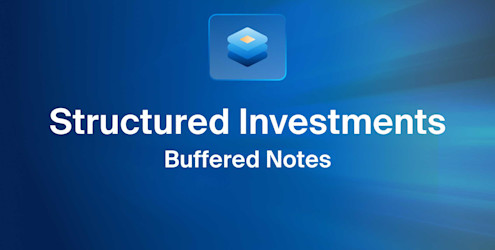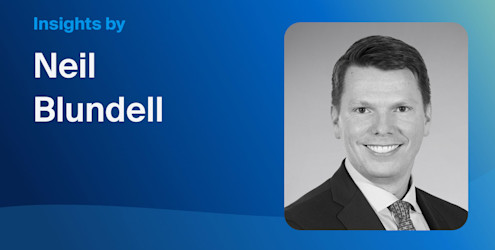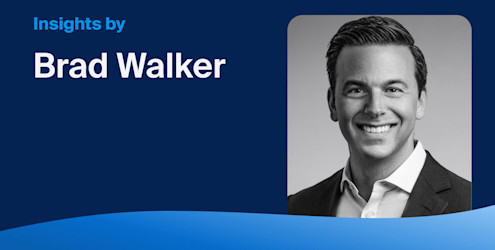This year's challenging market environment brought on an unwelcome turning point for the 60/40 investment strategy, leaving financial advisors to explain to clients why their traditional allocations to stocks and bonds may not be working like they once had. It also seemed to encourage many to turn toward alternative asset classes as a potential solution.
In our recent CAIS-Mercer survey, for instance, nearly 88% of advisors said that they plan to increase their allocations to alternative asset classes over the next two years.
This anticipated demand for alternative investments matches a relatively recent increase in supply available to independent financial advisors. New technology and regulatory updates, along with more attention from asset managers, have extended access to more types of alternative investments and structured products than ever before.
As many of these advisors plan to dedicate a greater share of their clients’ portfolios to alternative asset classes, they would be well served to understand and communicate the potential impact.
We believe that those who prioritize learning about alternatives will be best equipped to use these types of investments strategically in pursuit of their clients’ financial goals. Such an investment in an alternatives education is also an investment in their own career ambitions, as they strive to build their business through referrals and client retention. Likewise, wealth management firms that make these more sophisticated investments available to their network have a responsibility to ensure that advisors and clients understand the potential risks and opportunities they are unlocking.
Adopting the “lead with learning” approach
Internally at CAIS, we talk a lot about “leading with learning,” and we think that many of the financial advisors we work with could benefit from this approach too. To us, at the most basic level, this means starting from a place of curiosity and acknowledging our own knowledge gaps.
Day to day, it might mean that before discussing any investment decision with clients, a financial advisor starts by checking his assumptions and taking the time to learn about the risks of a specific asset class. Or perhaps it means that when targeting a particular portfolio outcome, such as growth or yield, the advisor has developed an understanding of the alternative asset classes or structured solutions that may achieve that outcome more effectively than stocks, bonds, or traditional mutual funds.
Leading with learning is also about the way that we interact with each other. When we lead our conversations intending to educate rather than to convince, we tend to create stronger connections.
The same may be true for advisors as they work with their clients. Indeed, when you can speak fluently about alternative investments, answering client questions with ease, you may more effectively earn a client’s trust than if you were merely trying to pitch a specific product. You may also be leading clients to better long-term outcomes by helping them learn and feel comfortable with the full spectrum of investment options available to them—not just the ones that are easiest to explain.
Ways to learn about alternative investments
Financial advisors who want to deepen their knowledge of alternative investments have access to an abundance of investment industry content. Many major asset managers and other financial institutions produce their own articles or research papers, and financial media continues to churn out stories on the latest products or trends. Still, the more content available, the more difficult it may be to discern what information is worthwhile.
Below are some considerations that financial advisors might keep in mind when planning an alternative investment learning strategy.
1. Seek out learning options that fit within your schedule
You can start building a more nuanced understanding of alternative asset classes over time by looking for free and flexible learning options that fit practically into your everyday life.
On-demand, online courses, like those available through CAIS IQ, can be completed on any device at any hour of the day. You can also pause and resume a course where you left off, so that you can learn incrementally, as you find the time.
Want learn more about CAIS IQ? Click here to watch a brief demo.
2. Access trusted, focused sources
When you’re searching for learning options, try to understand the priorities of those who are creating the content. Are they genuinely committed to education? Do they have a broader mission or are they primarily interested in selling particular products? What experience do they have working with independent financial advisors? Do they understand your specific day-to-day challenges and educational needs? In short, make sure your goals for taking a course are aligned with their goals for creating the course in the first place.
3. Enjoy the learning process
Lengthy, text-heavy whitepapers, fund documents and pitchbooks don’t always make for the most enjoyable—or effective—learning experiences. They also often focus on the interests of an institutional investor rather than a financial advisor. Instead, opt for content that’s optimized for your purposes and built specifically to help you learn. CAIS IQ courses, for example, are created by professional learning designers, using human-centered learning principles, to help advisors to remember, understand and apply key concepts in their everyday decisions and conversations.
4. Broaden your potential opportunity
Platforms that offer a breadth of courses, covering all relevant alternative asset classes and fund structures may be more convenient to use and help you more easily compare investment options. It’s also important to choose a learning platform that continues to expand and evolve with our fast-changing industry.
5. Earn CE credits
Reading a whitepaper on private equity or listening to a random podcast on real assets might teach you something you don’t know, but these activities may not count towards your continuing education (CE) requirements. Make good use of your valuable time by meeting multiple goals at once; in other words, earn while you learn about alternatives. Several CAIS IQ asset class courses are eligible for a CE credit from both CIMA® and CFP®.
Even if you’re not sure whether alternative investments might play a role in your clients’ portfolios, we encourage you to get started with CAIS IQ. You never know which new insight might make an impact in your next client conversation.
Sign up for your free CAIS IQ account today.





